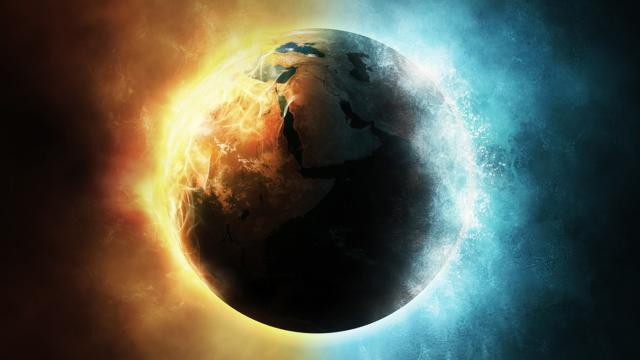Our incredible planet is at risk of entering a “hothouse climate” – that’s an Earth with a global average temperature of up to five degrees Celcius higher than pre-industrial temperatures, and long-term rises in the sea level of between 10 and 60 metres.
And that’s not the worst news. Even if we stop emitting greenhouse gases today, an increase of only one degree Celcius from where we are at now will likely send the Earth into a “natural” cycle of warming itself.
Lead researcher Professor Will Steffen from The Australian National University (ANU) said these kinds of increases in temperatures and sea level would be “devastating” for human civilisation and most ecosystems that support plant and animal life.
“The current efforts by nations, which are not sufficient to meet the emission-reduction targets set in the Paris Agreement a few years ago, are unlikely to help us avoid this very risky situation, where many parts of the planet could become uninhabitable for humans,” said Professor Steffen from the ANU Fenner School of Environment and Society.
Global average temperatures are just over one degree Celsius above pre-industrial temperatures and rising at 0.17 degrees Celsius each decade.
But human emissions of greenhouse gas are not the sole cause of temperature changes on Earth, Professor Steffen says.
“Our study indicates that human-caused global warming of two degrees Celsius may trigger other Earth System processes, often called feedbacks, that can trigger further warming – even if we stop emitting greenhouse gases.”
Excellent. Just great.
Researchers from Australia, Sweden, Denmark, the United Kingdom, Belgium, the United States, Germany and the Netherlands contributed to the study revealing this frankly terrible information. The team considered 10 natural feedback processes, some of which are tipping elements that lead to abrupt change if a critical threshold is crossed.
“The real concern is these tipping elements can act like a row of dominoes. Once one is pushed over, it pushes Earth towards another. It may be very difficult or impossible to stop the whole row of dominoes from tumbling over,” Professor Steffen said.
This “feedback cascade” could trigger the uncontrollable release into the atmosphere of carbon that had been previously stored in the Earth.
The feedbacks are permafrost thaw, loss of methane hydrates from the ocean floor, weakening land and ocean carbon sinks, increasing bacterial respiration in the oceans, Amazon rainforest dieback, boreal forest dieback, reduction of northern hemisphere snow cover, loss of Arctic summer sea ice, and reduction of Antarctic sea ice and polar ice sheets.
Great work, humans.
